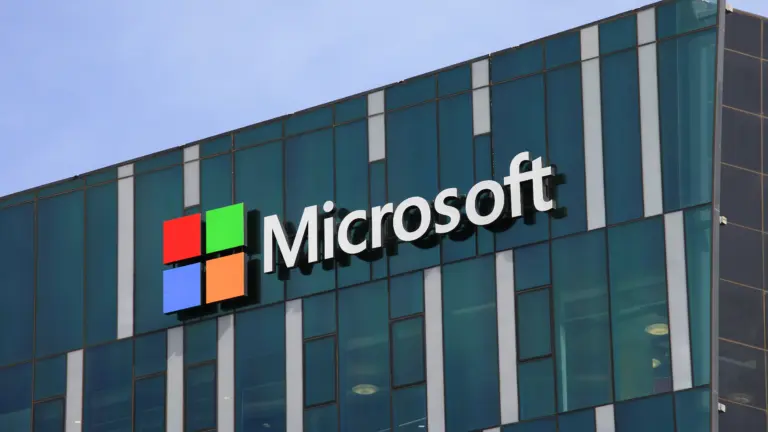Amid the technological transformation sweeping through Africa’s most populous country, Nigeria has played a pivotal role in reshaping Microsoft’s global strategy. As the company commemorates its 50th anniversary, Nigeria emerges as a standout market—one that has not only embraced Microsoft’s products but has also influenced its global approach to innovation.
I sat down with Ola Williams, Managing Director of Microsoft Nigeria and Ghana, to explore how Nigerian consumer behavior and entrepreneurial ingenuity have impacted Microsoft’s trajectory over the past quarter-century.
25 Years of Significant Engagement
Reflecting on the company’s deep-rooted presence in Nigeria, Williams shares, “We’ve been in Nigeria for nearly 25 years, making substantial strides in our operations and partnerships here.” This milestone highlights Microsoft’s long-standing commitment to the country, contributing directly to Nigeria’s evolving digital landscape.
Localizing Digital Literacy for Greater Inclusion
Williams highlights a key example of Nigeria’s influence on Microsoft: the company’s efforts to localize its digital literacy curriculum. “We’ve translated our basic digital skills training into Nigeria’s three major languages—Hausa, Yoruba, and Igbo,” he says. This initiative signifies more than simple translation; it represents Microsoft’s shift towards more inclusive and accessible digital education.
“For many Nigerians who aren’t fluent in English, this translation allows them to gain vital digital skills and use them to improve their lives,” Williams explains. Microsoft’s efforts in Nigeria have set a global precedent for digital inclusion, and these strategies are being adopted in other markets worldwide.
Nigerian Startups: The Powerhouses of Innovation
Williams notes that Nigerian startups have been at the forefront of Africa’s technological revolution, particularly through Microsoft’s Founders Hub. “Nigerian startups are leading Africa in adopting our Founders Hub program,” he proudly shares. “Their entrepreneurial mindset and eagerness to seize opportunities have positioned them as innovators across the continent.”
With 7,000 Nigerian startups receiving support from Microsoft’s Founders Hub—through resources like Azure credits, technical support, mentorship, and even venture funding—Nigerian entrepreneurs are taking the lead in building scalable tech solutions. Williams points to AirBank, a Nigerian startup that introduced “Africa’s first subscription-based banking system,” which provides financial services to small and medium-sized enterprises.
The Role of Nigeria’s Financial Sector in Driving AI Innovation
When asked about the Nigerian customers that stand out, Williams reflects: “It’s tough to choose just one. But there’s a clear pattern.” He emphasizes the early adoption of advanced technologies, particularly AI, by Nigeria’s Financial Services Industry (FSI).
“Nigeria’s fintech sector is setting the pace for innovation in the region,” Williams observes. This trend has made Nigeria a global case study for Microsoft in integrating AI into financial services, a model that is being replicated worldwide. Banks and financial institutions in Nigeria have rapidly embraced AI tools, and their efforts are shaping Microsoft’s broader AI strategies.
During Microsoft’s recent “AI Tour” in Nigeria, the company made a landmark commitment to train 1 million Nigerians in AI and cybersecurity, underscoring the country’s importance in Microsoft’s global AI strategy.
Real-World Impact: Nigerian Organizations Leading the Way
The conversation also sheds light on some of the remarkable ways Nigerian organizations have utilized Microsoft’s technology to address local challenges:
-
ICE: Utilizing Microsoft’s AI tools to identify small businesses that could benefit from renewable energy, empowering over 12,000 businesses with clean energy solutions.
-
Dangote Group: Leveraging cloud technology and Copilot for enhanced cybersecurity and digital transformation.
-
First Bank: Using Microsoft cloud technology to accelerate digital transformation for small and medium-sized businesses.
-
Access Bank: Adopting Copilot to foster innovation and boost productivity within its developer ecosystem.
Preparing for the Future: The Next 50 Years
As Microsoft reflects on its 50th anniversary, Williams looks forward, “It’s not just about celebrating our past, but also about planning for the future.” He points to Microsoft’s SkillVest initiative, a 50-day global program focused on providing access to AI training.
“We are committed to helping organizations and individuals leverage AI to drive creativity, innovation, and efficiency across various sectors, from healthcare to energy,” he notes.
Nigeria’s Role in Shaping Microsoft’s Global Strategy
What emerges from this discussion is clear: Nigeria has become more than just a market for Microsoft—it has become a testbed for new ideas, a source of insights that have influenced the company’s approach worldwide. As Microsoft celebrates its golden anniversary, Nigeria’s role in shaping its strategy is a testament to the country’s growing importance in global tech innovation.
The next 50 years of Microsoft’s journey will undoubtedly be shaped by lessons learned in Nigeria, where entrepreneurial spirit and technological advancement converge to create solutions with global impact.

